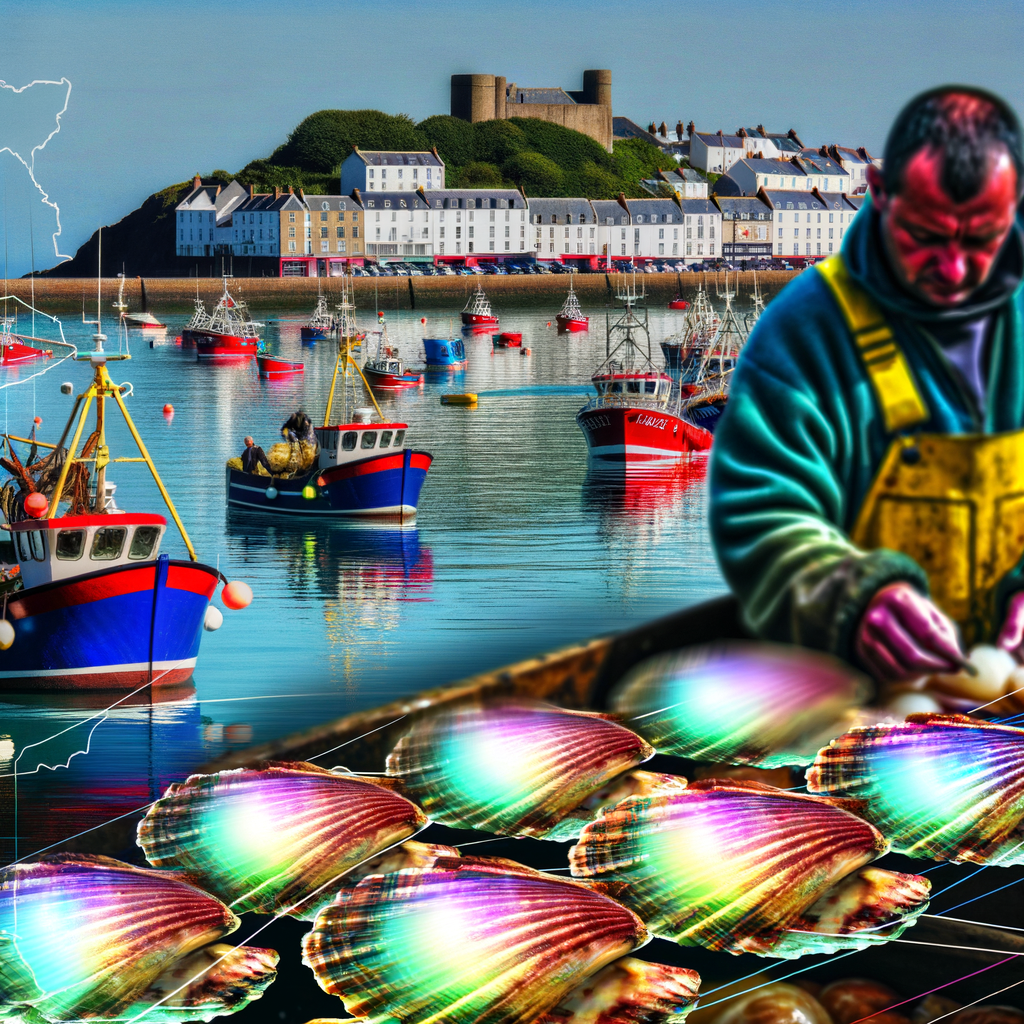Jersey’s Environment Panel Seeks Clarity on French Scallop Import Rules
In a recent development that has stirred the waters of Jersey’s fishing industry, the Environment Panel has called for greater transparency regarding the regulations governing the import of French scallops. This inquiry comes amidst growing concerns about sustainability and the impact of foreign fishing practices on local marine ecosystems. As the panel dives into the murky depths of these regulations, the implications for Jersey’s economy and environment are significant.
The Background: Scallops and Sustainability
Scallops are not just a culinary delight; they are a vital part of Jersey’s fishing industry. The island’s fishermen have long relied on these bivalves for their livelihoods. However, with the increasing scrutiny on fishing practices and sustainability, the Environment Panel’s inquiry is timely. The panel is particularly interested in understanding how French scallop imports align with Jersey’s environmental standards and whether these imports could undermine local fisheries.
What Are the Current Regulations?
Currently, the regulations surrounding scallop imports are somewhat nebulous. The Environment Panel is seeking clarity on the specific rules that govern the importation of French scallops, particularly in light of the European Union’s stringent fishing quotas and sustainability measures. The panel’s chair has expressed concerns that without clear guidelines, Jersey’s local fishermen could be at a disadvantage, potentially leading to overfishing and environmental degradation.
- Impact on Local Fisheries: The panel is worried that unchecked imports could lead to a decline in local scallop populations.
- Consumer Awareness: There is a growing demand for sustainably sourced seafood, and consumers are increasingly interested in the origins of their food.
- Economic Implications: A decline in local fisheries could have a ripple effect on Jersey’s economy, affecting jobs and local businesses.
The Call for Transparency
The Environment Panel’s push for clarity is not just about protecting local fisheries; it is also about ensuring that consumers are informed. In an age where sustainability is at the forefront of many people’s minds, the panel believes that transparency in import regulations is essential. They argue that consumers have the right to know whether the scallops they are purchasing are sourced sustainably or if they are contributing to environmental harm.
Potential Consequences of Inaction
If the Jersey government fails to address these concerns, the consequences could be dire. Local fishermen may find themselves competing against cheaper, potentially unsustainable imports, leading to a decline in their livelihoods. Furthermore, the lack of clarity could damage Jersey’s reputation as a destination for high-quality, sustainably sourced seafood.
- Environmental Risks: Overfishing could lead to long-term damage to marine ecosystems.
- Economic Risks: A decline in local fisheries could result in job losses and reduced economic activity.
- Consumer Trust: Failure to provide transparency could erode consumer confidence in local seafood products.
International Implications
While this issue may seem local, it has international ramifications. The fishing industry is interconnected, and decisions made in Jersey can have ripple effects across borders. If Jersey establishes stringent import regulations, it could set a precedent for other jurisdictions, potentially leading to a shift in how seafood is sourced globally.
Moreover, as the world grapples with climate change and environmental degradation, Jersey’s approach to scallop imports could serve as a model for other small island nations. By prioritising sustainability and transparency, Jersey could position itself as a leader in responsible fishing practices.
NSFW Perspective
As we navigate the choppy waters of scallop imports and environmental regulations, it is crucial to remember that the stakes are high. The Environment Panel’s call for clarity is not just about protecting local fisheries; it is about ensuring that Jersey remains a beacon of sustainability in an increasingly uncertain world. The government must act decisively to address these concerns, not only for the sake of local fishermen but for the future of Jersey’s marine environment.
In a world where the phrase “sustainable seafood” is often thrown around like confetti at a wedding, Jersey has the opportunity to lead by example. By prioritising transparency and sustainability, we can ensure that our scallops are not just delicious but also responsibly sourced. So, let’s hope the Environment Panel gets the answers it seeks, and that Jersey continues to be a place where both the ocean and its fishermen can thrive.




